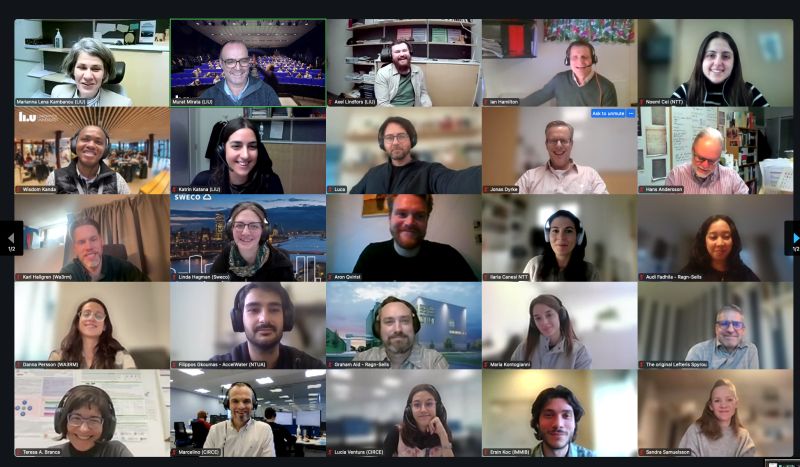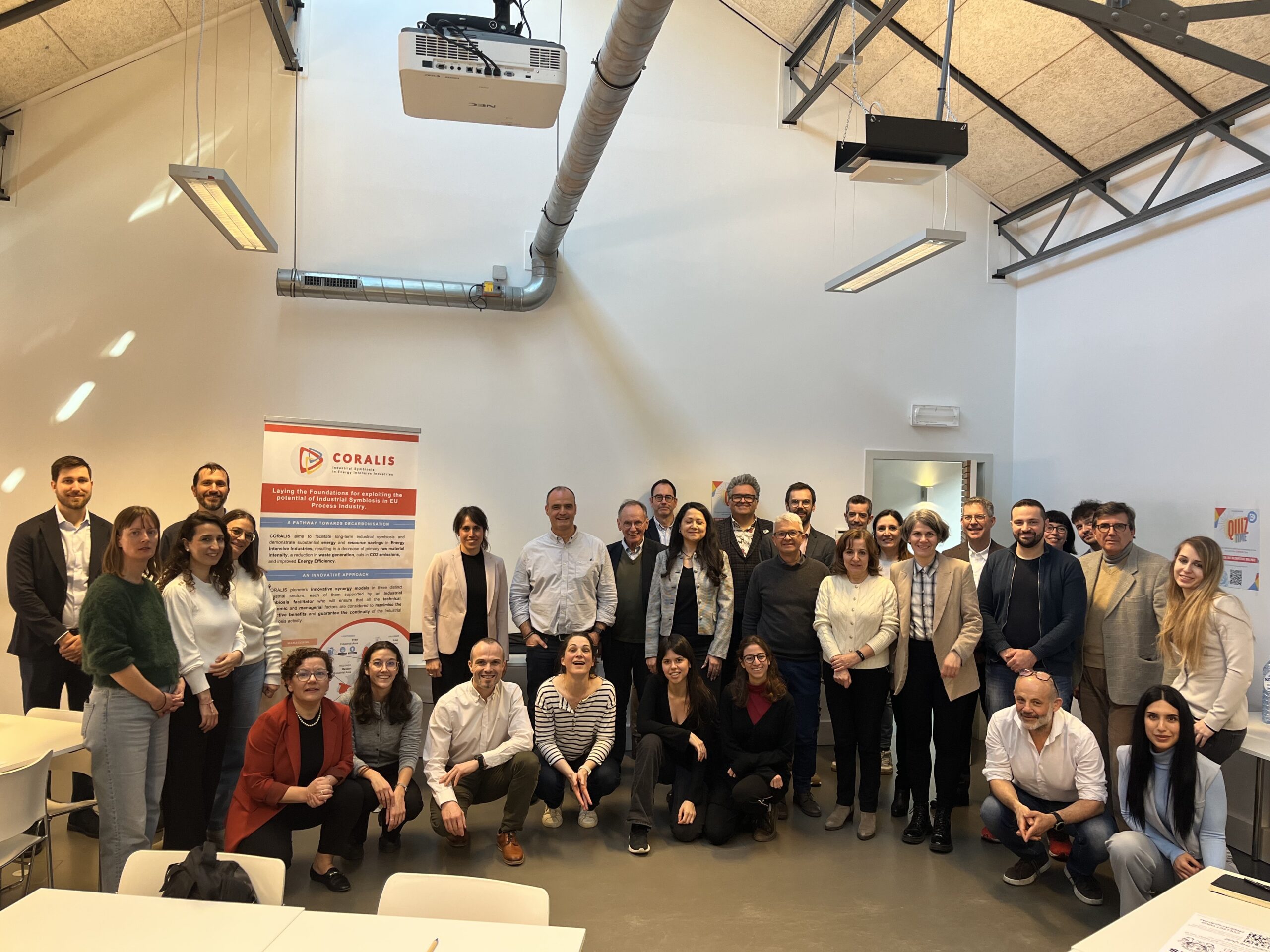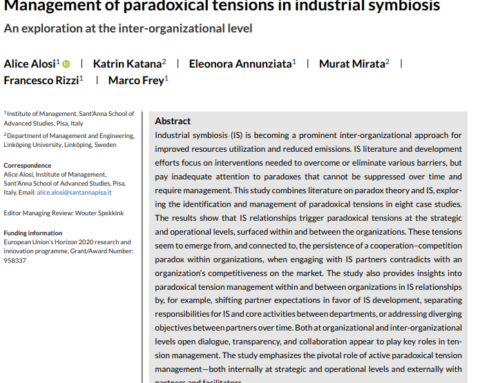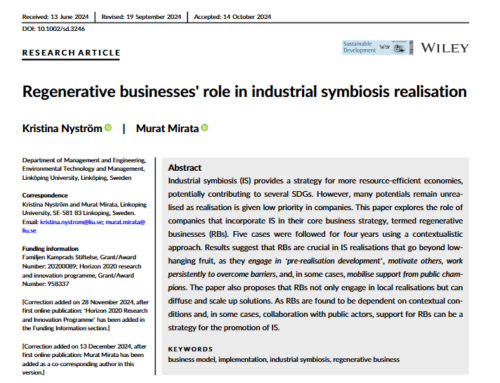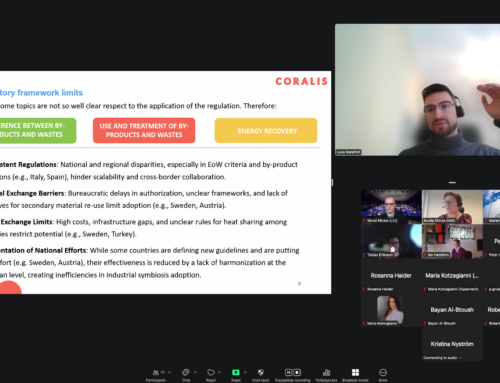On Monday 27th January 2025, our project partners at Linköping University (LiU) hosted the Industrial Symbiosis Business Models Workshop to explore how businesses can effectively identify and capture value within industrial symbiosis networks. The session aimed to deepen the understanding of business models in industrial symbiosis and highlight strategies for maximizing economic, environmental, and social benefits.
The workshop began with an interactive session where participants shared their perspectives on industrial symbiosis business models and the circular economy. This was followed by a presentation of the Business Value Framework for Industrial Symbiosis, which structured the discussion when analysing the business case. The framework provides an overview of industrial symbiosis business values, divided into four domains: costs, revenues, risks, and soft values. It has been published as part of the CORALIS project and can be found here: https://onlinelibrary.wiley.com/doi/full/10.1111/jiec.13545.
Following the introduction, participants engaged in four dedicated breakout groups, each focused on analysing a specific case study using the Business Value Framework for Industrial Symbiosis:
- Textile recycling – Addressing challenges in recycling textiles into yarns and new textile products in Italy.
- Water reuse – Exploring viable customers for industrial wastewater reuse.
- Waste heat utilization for vegetable production – Examining how excess heat from industrial facilities can be used in greenhouses.
- Agricultural and forestry residues to protein – Investigating innovative ways to transform organic waste into valuable protein sources.
Rather than focusing on technical feasibility, each group worked on identifying the value created for the actors involved in the business case, followed by discussions on how to capture that value. This included potential contracts, pricing mechanisms, and safeguards for maintaining successful relationships. The discussions also highlighted the importance of cross-sector collaboration, regulatory support, and innovative business models in scaling industrial symbiosis initiatives.
After the breakout discussions, the groups reconvened to share their findings, leading to a collective reflection on best practices and policy implications. The session provided valuable insights into how businesses can integrate industrial symbiosis into their operations while balancing economic viability and sustainability goals.
We extend our gratitude to the case owners—Karl Hallgren, Danna Persson, Noemi Cei, Ilaria Canesi, Argyro Plevri, and Filippos Gkoumas—for their contributions. A special thanks also to the facilitators—Marianna Lena Kambanou, Axel Lindfors, Murat Mirata, and Katrin Katana—for organising and running the workshop.


